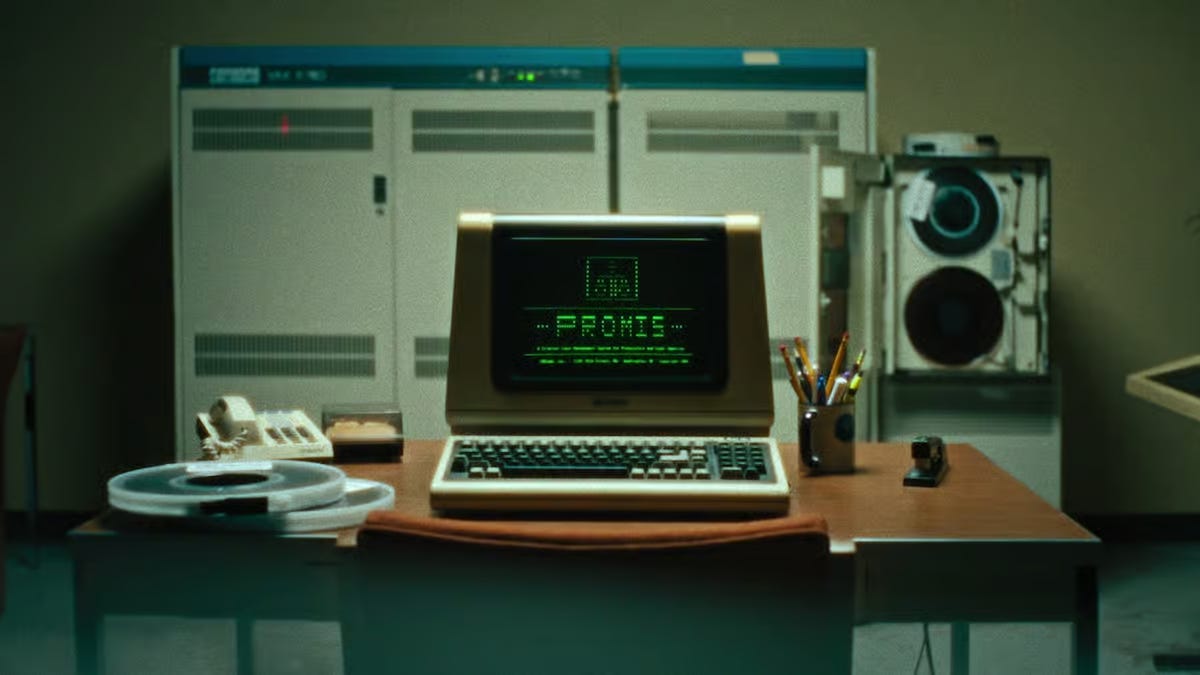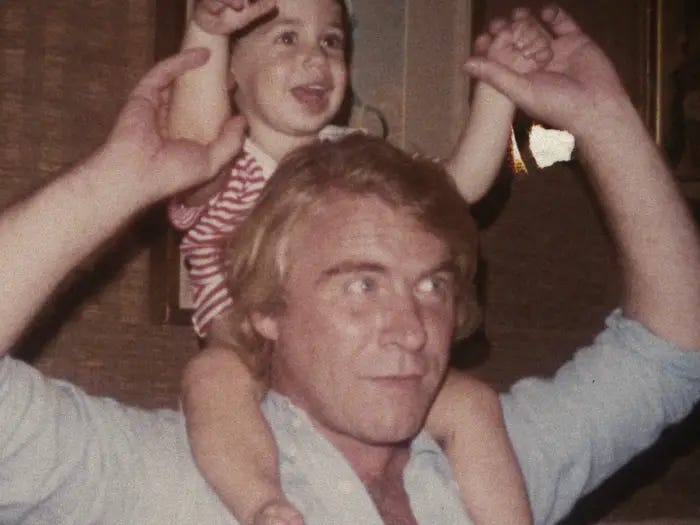'American Conspiracy: The Octopus Murders' — Truth is Stranger Than Fiction
A Netflix true crime documentary that is surprisingly nuanced and thought-provoking.
Foreign Perspectives is a mix of free and paid content. Certain columns such as these are free for all subscribers, but other articles will be exclusive for paid subscribers. If you enjoy the work I do, please consider upgrading to a monthly or yearly subscription. Your support is greatly appreciated and ensures that this Substack can continue to deliver high quality pieces.
True crime is one of my lesser-known guilty pleasures. Ever since I was a child, I’ve always been fascinated by strange disappearances, unsolved murders, and even a serial killer or two. There’s something about the unexplained and macabre that keeps me up at night, apart from when I’m not thinking about my next deadline or article to write. Geopolitics, Star Wars, and obscure foreign films no one has ever heard of aren’t the limits of my interests. I often wonder if that alleged photo of Tara Calico is real or not too.
At the same time, true crime is a lot like the horror film genre. You have to wade through a lot of schlock and terribly produced content to get to the stuff that’s worth your time. YouTube has gotten especially lazy with this sort of thing, with everyone and their mother fashioning themselves as an online sleuth who knows the answers to bizarre mysteries that aren’t actually mysteries. It’s reached the point where some channels don’t even try anymore — many are just AI voiceovers reading a script generated by ChatGPT. I’ll save my ire toward artificial intelligence destroying art and making everyone dumber for another day though.

Apart from YouTube and podcasts, the other main outlet for true crime is Netflix. Being a professional media company, overall standards for their documentaries are obviously higher, but there’s still plenty of rubbish programming. It seems that everyone has tried to ape the style of Making a Murderer, a popular series which came out a decade ago and was later revealed to have its own problems with bias. Many of these shows demonstrate considerable issues with how they frame their subject matter and some eschew the “true crime” label entirely. Monster: The Jeffrey Dahmer Story was a straight up dramatization of its titular cannibal serial killer, sparking controversy around whether it was exploiting the horrific experiences of Dahmer’s victims.
So it was with much trepidation that I dove into American Conspiracy: The Octopus Murders expecting another tired Netflix true crime documentary with all the cliches, but walked away pleasantly surprised at what it accomplished. Across four episodes, director Zachary Treitz and his journalist friend Christian Hansen try to make sense of the mysterious 1991 death of Danny Casolaro. To make a long and very convoluted story short, the freelance writer had arrived in Martinsburg, West Virginia supposedly with the intention of meeting with a source who was to assist him on a story about “The Octopus” — a sprawling international cabal allegedly tied to the highest echelons of the U.S government with its fingers in everything from drug trafficking to assassinations.

If this spy novel-esque story couldn’t get any stranger, everything came to a screeching halt after Casolaro was found dead at the Sheraton. Housekeeping staff discovered him in the room’s bathtub with his wrists deeply slashed a dozen times and blood splattered everywhere. With no signs of a struggle outside the bathroom and a farewell note from Casolaro, police quickly ruled the affair a suicide. Yet even back in 1991, many who knew the intrepid reporter were not convinced and news stations across the country began raising questions around what actually happened.
For one thing, Casolaro was said to have been very squeamish around blood. He likely would have chosen a different method over something so gruesome if he was serious about taking his own life. In the weeks before his death, the man additionally told his family to not believe any reports of suicide. While none of that alone is proof of murder, police did not find the briefcase of notes that Casolaro constantly carried with him. Their subsequent investigation left out critical testimony from a witness who claimed to have seen someone visit his room and much of what he did during the final hours of life remains unclear.

Central to American Conspiracy is the parallel story of Christian Hansen who is shown dedicating over a decade of his life toward this case. Some viewers may question the decision to turn this documentary into a personal story, but it becomes apparent that there is a point. Whether Casolaro ended his own life or was murdered, his pursuit of uncovering a grand conspiracy and stepping on the toes of powerful people played a significant factor in his ultimate end. If he was indeed killed by some shadowy government organization, then it was because he ventured into a highly dangerous world. If he committed suicide, then it was the culmination of obsession driven or exasperated by mental illness. Either way, Hansen is aware that he too walks the same fine line.
After setting up the basic facts around how Casolaro’s body was found, American Conspiracy peels back the layers to several years previously with the Inslaw affair. A Washington D.C.-based tech company developed software dubbed PROMIS (Prosecutors Management Information System) in the 1980s to assist prosecutors’ offices with their caseloads. The United States Department of Justice took an interest in PROMIS, but the firm accused them of illegally modifying the software for the purposes of surveillance. The two sides ended up embroiled in years of legal battles which Inslaw initially won, only for suspicious machinations behind the scenes to shift victory in the DOJ’s favor.

Casolaro’s investigation into the Inslaw affair supposedly revealed a greater web of connections tied to corrupt officials, contracted assassinations, and other unsavory transactions that sound exactly like the “smokey rooms and backdoor deals” image most associate with three-letter government organizations. Dubbing this network “The Octopus,” we learn of convenient deaths of inconvenient people, the possibility that multiple presidential administrations were in on the whole thing, and the exploitation of Native American land to facilitate illegal arms sales. The series could have easily devolved into another Netflix documentary after cheap sensationalism from here, but American Conspiracy instead proves to be something that is fully self-aware of what territory it’s entering. Treitz’s focus is on how deep the conspiracy could potentially go. The implications for this line of thinking are truly horrifying — there is no bottom to the rabbit hole for the committed.
One of the most disturbing scenes comes midway through when Cheri Seymour, a reporter who wrote the 2010 book The Last Circle on Casolaro’s death, is interviewed. She recounts a chilling meeting with Robert Booth Nichols, a wealthy businessman with possible CIA ties who is one of the key figures tied to The Octopus conspiracy. After telling her that “no journalist has done enough work to deserve to know” what happened to Casolaro, Nichols allegedly showed her the “real” version of the Zapruder film capturing the 1963 assassination of John F. Kennedy. In the cut Seymour says she watched, the driver of Kennedy’s car suddenly turns around and shoots the president. After informing her that all public copies of the film are modified, Nichols dryly states, “Nothing is as it appears to be.”
Seymour and the filmmakers know that the above story is utterly ludicrous, but so should the audience. Nichols most likely showed a copy of the Zapruder film that he altered to discredit anyone who repeated what they saw. After all, no one can find this “real” version because it doesn’t exist in the public record. No one else apart from Seymour can verify that her meeting with Nichols ever took place. Say what occurred verbatim and you look like the unhinged one. Shut up about it and you’re back to square one — a catch-22. Or maybe none of this ever happened in the first place. American Conspiracy features many similar haunting anecdotes and tangents throughout its runtime, but it lets the audience come to their own decisions around who to believe and to what degree everything ties together.
Case in point, the Iran-Contra affair involved the Reagan administration illegally selling weapons to Iran in order to fund anti-Sandinista rebels in Nicaragua. It’s a real political scandal written in the history books, but it started life as a conspiracy theory known only to a select few. Even after the subsequent fallout, Ronald Reagan continued his second term and Oliver North remains a successful political pundit who you can follow on social media. Like it or not, the public eventually got over what was a blatant abuse of presidential power and violation of congressional law. American Conspiracy suggests that Iran-Contra was possibly one piece of the Octopus web and it very well could be. Then again, the series also acknowledges that it isn’t hard to find threads between separate events if you look hard enough.
Unlike many other Netflix documentaries which are heavily skewed toward one conclusion, American Conspiracy is content to throw its hands up and acknowledge that it will perhaps be impossible to ever learn what went on in Casolaro’s room. Thanks to persistent FOIA (Freedom of Information Act) requests, Treitz and Hansen gained access to new information which was never made public. These revelations give their series genuine value beyond any previous online investigations. The duo even consider the name of a possible assailant who would’ve had the skills, training, circumstances, and technical know-how to get rid of Casolaro. Due to several key witnesses and persons of interest having died in the ensuing years, however, this is still only speculation.
That may prove to be a frustrating coda for some viewers, but a true dyed-in-the-wool conspiracy theorist is never really satisfied. By the end, Hansen himself has to decide when to call it quits and move on with his life or risk succumbing to the same obsession which led to Casolaro’s demise. Taking the red pill over the blue pill would not necessarily be salvation either. If there really is an octopus-like web of interconnected organizations and powerful men being controlled at the behest of the U.S. government, could anyone really stop them?
Foreign Perspectives is a reader-supported Substack. If you like my work and have come this far, consider opting for a paid subscription so I can continue writing in-depth articles such as these on a regular basis. Your support is greatly appreciated!





